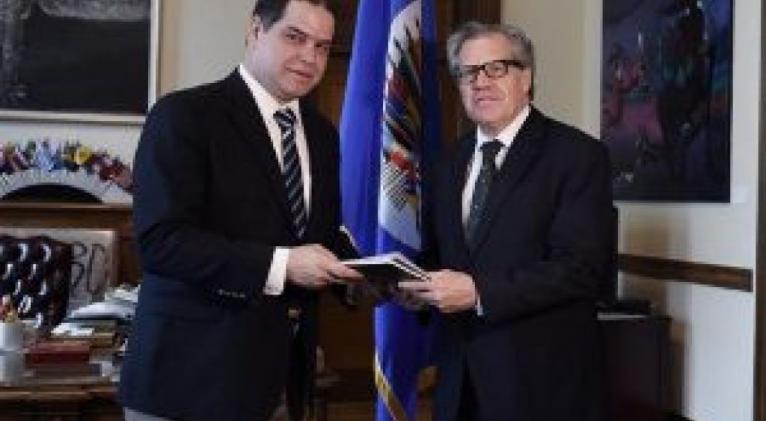As OAS Pushes Application of Democratic Charter on Venezuela, Maduro Hardens Stance
especiales

However, Maduro was less than impressed by the OAS move, saying just hours after Almagro’s report was made public that he would “take legal action against the (opposition-held) National Assembly for usurping functions exclusive of the head of state.”
“The opposition, by asking that the OAS activates the Democratic Charter, committed the felony of treason to the country”, Maduro said during a televised address from a public event in downtown Caracas.
“The international right wing carried out a coup d’etat in Brazil and the OAS stayed silent, but we here will put up a battle,” Maduro declared.
The OAS move the day before the CNE electoral authority is set to announce whether or not the recall vote against Maduro can continue to its next natural phase: the collection of some 4 million signatures from those in favor, roughly 20% of registered voters.
OAS Secretary General Luis Almagro published a 132 page report Tuesday and called for an urgent, extraordinary meeting of the organization’s general assembly which will take place no later than June 20th.
A HISTORY OF SUSPENSIONS
If 23 out of the 35 member states say so, the Democratic Charter of OAS will be activated against Venezuela.
The oil-rich country will be suspended from the Inter-American system designed during the Cold War, just as Honduras was suspended in 2009 (after the coup that ousted President Mauel Zelaya) and Cuba, in January 1962, three years after Fidel Castro took power from Fulgencio Batista in a revolution and failed to hold democratic and free elections.
Honduras was the last country suspended from the system and Cuba the first. Curiously, the Cuba suspension was lifted during an OAS meeting in Honduras, weeks before the coup that ousted Zelaya.
Cuba was suspended for, among other things, refusing to honor the “Caracas Commitment” between Castro and then Venezuelan President Romulo Betancourt, which demanded that elections be held in Cuba inside of six months after the signing of the agreement in Caracas.
INTERNALIZE THE RECALL
The first recommendation in Almagro’s report reads:
“We request the lawful acceptance and internalization by the government, the opposition, political and social actors as well as by the international community with regards of the recall referendum taking place in the year 2016, democracy in Venezuela depends on it being carried out.”
The second recommendation of the report is that all political prisoners be released. Venezuela under Nicolas Maduro now has more political prisoners than Cuba, according to Amnesty International. And the opposition denounced a fresh dragnet Monday night in central Venezuela during an opposition protest, with about 20 demonstrators being arrested.
OPPOSITION EMBOLDENED
In Venezuela, the opposition took Almagro’s recommendation as a triumph. Mitzy de Ledezma, wife of jailed Caracas mayor and opposition leader Antonio Ledezma, tweeted: “Dr. Luis Almagro in OAS is not just looking after his post, he looks after Democracies in America. Unforgettable gesture!”













Add new comment